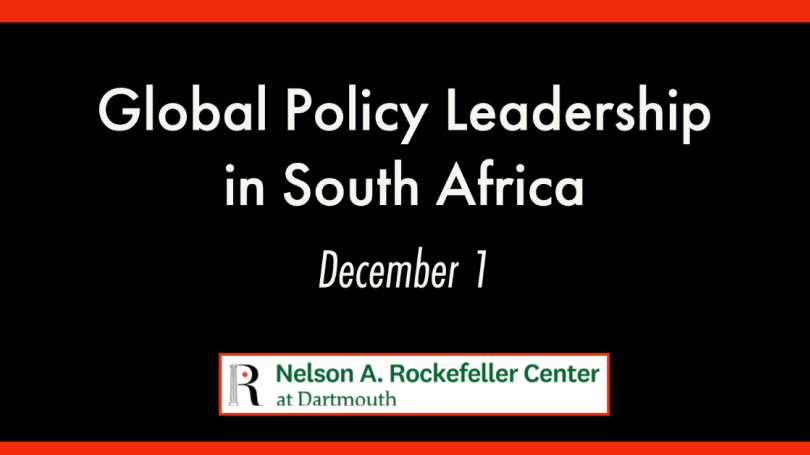
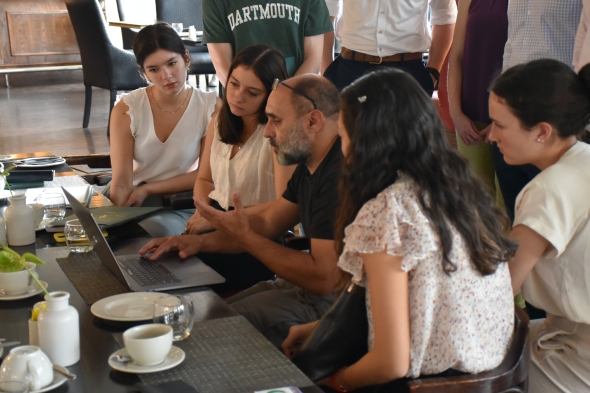
Welcome to the first full day of coverage of the PBPL 85 class' travels in South Africa. Keep reading to learn more about our deepening dive into South Africa from Thomas Brown '23, a government and English major from Darien, CT.
A 9 a.m. breakfast began the day, when the cohort met New York Times photographer João Silva. He spoke extensively of his career in photojournalism and his observance of South African social dynamics and rampant inequality. What resonated with us was not only how Silva's photos juxtapose such beautiful images against devastating backgrounds of war and famine, but also how Silva retains an unceasing compassion for his subjects.
photo1.jpg

Following a short break, the group traveled to the Mapungubwe Institute for Strategic Reflection (MISTRA) to learn about what their narrative models say about what a socially cohesive South Africa might look like depending on what most impactful and certain factors will occur. One driving factor to social cohesion that MISTRA's research has identified is Resistance, Resentment, and Reconciliation — the final word of which might ring a bell in the minds of those following PBPL 85's task of research racial reconciliation. Our discussion turned to the many intangible factors that can drive reconciliation, like a sense of hope, shared history, and identity, trust in institutions, and support for democratic and constitutional values. The conversation continued over delicious Indian food outside in the warmth — a pleasant and much-needed change from the quickly darkening days of Hanover.
photo2.jpg
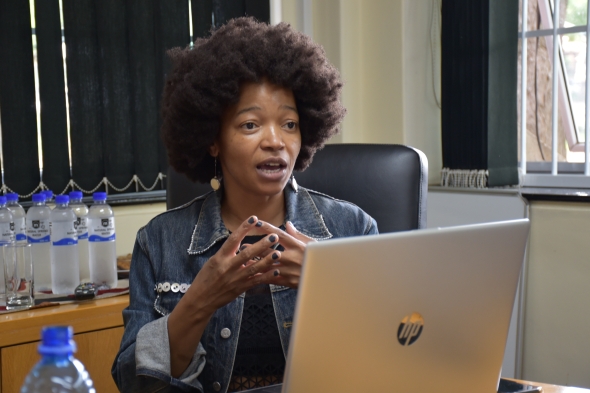
Xolelwa Kashe-Katiya of the Mapungubwe Institute for Strategic Reflection think tank presented her organization's research on what a socially cohesive South Africa might look like to the group.
What I consider to be the highlight of the day was a visit to Alexandra (often shortened to "Alex"), a neighborhood within Johannesburg. We met with representatives of Grassroots Soccer, a non-profit organization that provides social services like mental and sexual health education and soccer as a social outlet to children and teenagers in Alex. The 15-minute drive from our hotel in Johannesburg's financial district Sandton — the richest square mile in Africa — to Alex — one of the poorest urban areas in South Africa — revealed how closely the lives of privilege and poverty cohabitate in the Rainbow Nation. Many of us appreciated not only the opportunity to stretch our legs after hours of sitting at tables, but also the chance to ask questions to a younger generation of South Africans, a group whom many we have met so far frame as the most vital component of South Africa's future ability to heal and grow.
photo3.jpeg
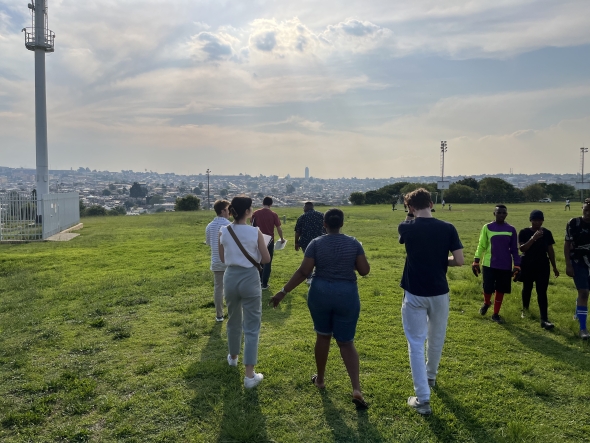
PBPL 85 students walk alongside representatives from the Grassroots Soccer field as we tour their outdoor fields and look out over Alex.
photo4.jpg
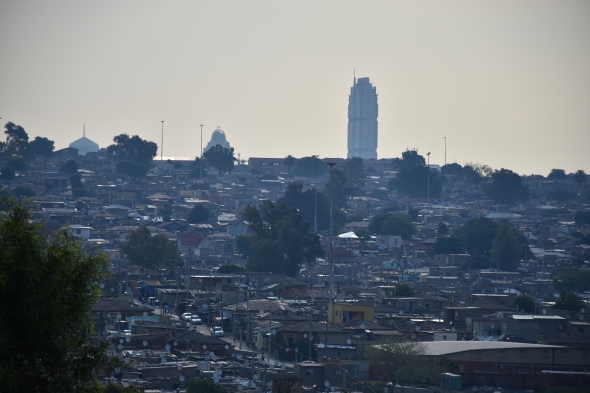
A view of Alex captured from the Grassroots Soccer field.
For our last meeting of the day, the cohort met with investment manager Nhlanganiso Mkwanazi at a restaurant for dinner to learn more about the financial system in South Africa. The conversation focused on the importance of having access to capital and economic expansion for social mobility. Understanding broader macroeconomic trends in South Africa's economy and international interest rates will be necessary to developing policies that will attract foreign direct investment and business.
photo5.jpeg
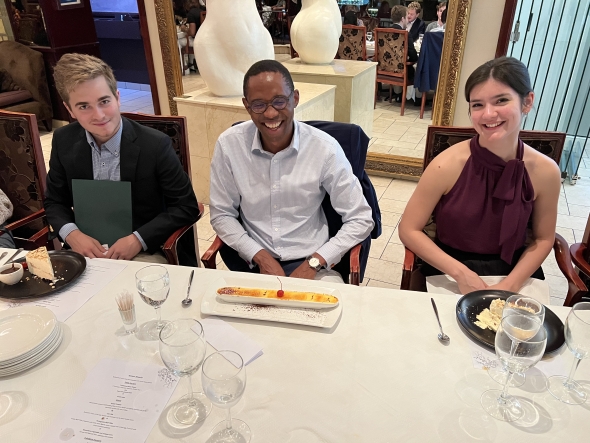
Henry Nolan '23 and Claire Betzer '23 enjoyed sitting beside Nhlanganiso Mkwanazi to discuss how his firm invests institutional capital in entrepreneurs' businesses.
We ended the night with an impromptu memo planning session to finalize our structure and overall argument. As Kyle mentioned in yesterday's blog entry, (a lack of) trust in the government and institutions of South Africa has been frequently discussed in our meetings as a critical roadblock to racial reconciliation. As the deadline for our memo encroaches, the need to enact policies that create trust appears to be our memo's overall framing device.
After a 12-hour day, all Dartmouth students trickled to bed, ready to visit the Apartheid Museum and Nelson Mandela's former house in Soweto on Day 3. (For those worried readers, the Boston-misplaced luggage of Kyle has been located! He showed up to our dinner looking dapper in a pair of his own clean clothes. We still remain hopeful that Josh's will be located and returned to him promptly — although he also managed to clean up for dinner following some shopping at the mall and a borrowed jacket from Drew.)